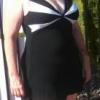Search the Community
Showing results for 'Complications'.
Found 17,501 results
-


Surgery tomorrow freaking out
Sweetbaby1 replied to Sweetbaby1's topic in Tell Your Weight Loss Surgery Story
I hear so many people say surgery was literally a breeze, I'm sure it will be. I just have this notion that I rather panic, and have a smooth recovery, than be cool and calm but have complications. This is the point of no return -deep breath- -


I have my failed my pre-op liquid Diet. Terrified I won't be able to do surgery
PJenkins replied to abigman's topic in PRE-Operation Weight Loss Surgery Q&A
I think you must remember that the thing is the journey. How well can you follow directions? This is like learning to ride a bike. You fall off and get back on. I don't quite get the 2 weeks of previous behavior? You need to figure out what that was about for you. Why did it take you so long to face it? It is time for a reset. Most of the complications appear to be related to not following the post op diet. Cheating here could be fatal. -


Surgery set for July 30th!!
DELETE THIS ACCOUNT! replied to xxjosettexx's topic in Tell Your Weight Loss Surgery Story
I know this is none of my business, but I say this out of genuine concern. Please reconsider using this surgeon. It says on his website he uses the 4cc band. The 4cc band is very outdated and no longer used in the US. The reason it's no longer used is because of it's very high rate of complications. There are reputable surgeons in Mexico that use the newer, safer, bigger bands. I urge you to consider one of them. Your health is worth it and I would truly hate to see you go through more hell because of the 4cc band. Best wishes. -
Well , today is finally here. I did the 2 days of clear liquids. That wasn't as bad as I thought it would be. My family and I went to Holiday World Wednesday. A little sunburned, but it made the day go fast. I have to be at the hospital at 9:30, surgery is at 11:30. I keep having second thought, but I know this is what I want to do. I just don't want any complications. I'm fairly healthy, but obese. I don't want anything bad to happen. I know everyone feels that way and it is encouraging to read your stories. Say a prayer that the doctor performs great and I recover well.
-
Sorry to here your complications. I have a slipped band so I know all about acid reflux especially at night. I often would rather sleep sitting straight up than go lay down. If I am not throwing up in my sleep I wake up drowling all of hte place. OK now that you have a geat picture of me..LOL, I hope that your unfill will do the trick. No one needs to live like this. I have to for awhile but bec I am pregnant, but wouldn't wish it on my worst enemy. Take care and let us know how it goes.
-
All of you sound exactly like me. I was banded 12-29 and have lost 27 lbs. I keep wondering if I should get another fill, but I get food stuck constantly and it's painful. I lost 22 lbs the first 4 weeks because I had to be on the liquid diet after the surgery. That means I have only lost 5 lbs in the next almost 3 months. It's very frustrating. I am really afraid to be filled too much, because I hate that golf ball feeling of food being stuck, and I am so afraid of pbing and the band slipping. Who knew this was going to be so complicated. I do everything they tell me to do. I drink over 64 oz of water, I exercise 6 days a week, and I eat small solid meals. I want to see some weight loss!
-

How common is strictures and scar tissue with gastric sleeve?
Kindle replied to spangebabe's topic in Gastric Sleeve Surgery Forums
My research has turned up the same info as Arts. For example, sleeve complications are higher than band complications in the short term (can't remember the exact stats). But in the longer term, the complications of sleeve go way down compared to the band. Basically, if its going to go wrong with the sleeve it goes wrong within the first couple months. (As long as you stick with your long term diet and vitamin supplementation) I would talk to your surgeon about their specific complication stats because little variations in techniques make a difference in leak/stricture rates (I.e. bougie size, oversewing, pre and post op diet plan, etc.) -
1, Date of banding. May 9, 2006 2, Weight/BMI on date of banding. I think it was like 48.6, weight was 331 pounds 3, What band do you have. Swedish 9cc Midband 9cc Vanguard Lap Band 4cc or 10cc :biggrin1: 10cc Heliogast 7cc or 9cc A,M,I soft band 7cc or 9cc 4, What was you own person reason for WLS Cosmetic :biggrin1: To look better and not feel like everyone is staring at the fat guy Health To lower my blood sugar and blood pressure. Both were high and doctor wanted to put me on meds for both 5, Why the band and not Bypass or DS. Safer, wife was not supportive of RNY 6, What were you’re expectations about the band. After much research and doctors advise, I knew I would have to work hard. This is a tool and not a magic potion to loose weight 7, What were you’re expectations about the impact weight loss might have on you’re life. Longer and happier life 8, What is you own personal target weight/BMI. 170 pounds 9, What is the realistic target/expected weight loss/BMI. 160 pounds 10, How much was you’re band and how did you fund it. Insurance :biggrin1: - about $500 out of pocket Re-Mortgage Loan NHS (uk patients) Savings 11, Do you consider the cost of your band justified or expensive. Yes, much cheaper than a lifetime of taking medication for health problems, not to mention doctor's visits and possibly hospital stays. Also much less likely to have to have joint replacement because of the reduced weight 12, How many fill’s/unfill’s have you had. 4 fills, 5cc I beleive 13, How did you have you’re fill’s Blind 3 fill's 2 unfill's Under x-ray all 4 done under flouro 14, How much are you’re fill’s $15 co-pay through insurance 15, Does your surgeon do your fill’s or a fill provider. Surgeon or Physicians assistand done at his office 16, If you travelled for your band why did you travel. N/A17, Did you experience any complications/Difficulties. No 18. When did the problems begin. N/A19, what problems did you experience were they resolved and how was they resolved. N/A 20. Would you be banded again or chose another op. In a heartbeat. Best thing I have ever done. I feel like the band has saved my life or at the very least made it worth living.
-
I am 59 years old and 3 days post-Op and feeling great so far. I expected this surgery to really take a toll on my body, but so far my recovery has been without pain or complications. I had my surgery in Tijauna Mexico on Saturday, Aug 18th and everything went smoothly. I thought I would have a problem adjusting to my new way of eating but so far I am sticking to the plan my doctor gave me. I must admit though, the first day of jello and apple juice did get to me, all I could think about was solid food. But I promised myself that I could do this and I know with a little determination I will. :mad: deej
-
I am doing well with no complications. I hardly know the band is there except I have been living on soup for 4 weeks and I'm not hungry. Just this week I progressed to scrambled eggs and mashed potatoes! I've lost 20 lbs and had to buy new pants to wear to work! first fill date is the 25th
-
Hello, I am due for my first official step, the seminar next Tuesday. I am really conflicted about this, but I don't see another way available to get control of my weight, and life. I have many problems that the weight complicates. I'm looking for support, and I thank you for any offered.
-
I've been wrestling with a similar dilemma. There was no medical reason compelling one surgery over another since I don't have diabetes or binge eat sweets. The doctor recommended sleeve because there are fewer potential complications. Also, he feels I have a higher than average risk for ulcers due to a previous ulcer. Earlier this week I was panicking because I felt like my diet was deteriorating and maybe I needed dumping syndrome as a tool. I called and spoke to the dietician. She had me read my food diaries to her and told me she thought I was actually making reasonable decisions, and that I would do well with the sleeve. I feel relieved. I think anxiety just increases as surgery approaches. Also, it's hard to make a decision because I don't have any experience of not feeling too much hunger for my body. So I don't know what life will be like if I don't feel that degree of hunger. I can really empathize with your agonizing over which one, especially if two different docs are telling you two different things. My doc's reasoning was: bypass is better for diabetics, people with severe sweet cravings leading to binging, and people with serious GERD. Sleeve is the better option without those indicators, and for people with a history of ulcers. I really trust him a lot.
-


What counts as water.? Mayo Clinic answer
sfeiner posted a topic in PRE-Operation Weight Loss Surgery Q&A
Water is essential to good health, yet needs vary by individual. These guidelines can help ensure you drink enough fluids. How much water should you drink each day? — a simple question with no easy answers. Studies have produced varying recommendations over the years, but in truth, your water needs depend on many factors, including your health, how active you are and where you live. Though no single formula fits everyone, knowing more about your body's need for fluids will help you estimate how much water to drink each day. Health benefits of water CLICK TO ENLARGE Functions of water in the body Water is your body's principal chemical component, comprising, on average, 60 percent of your weight. Every system in your body depends on water. For example, water flushes toxins out of vital organs, carries nutrients to your cells and provides a moist environment for ear, nose and throat tissues. Lack of water can lead to dehydration, a condition that occurs when you don't have enough water in your body to carry out normal functions. How much water do you need? Every day you lose water through your breath, perspiration, urine and bowel movements. For your body to function properly, you must replenish its water supply by consuming beverages and foods that contain water. A couple of approaches attempt to approximate water needs for the average, healthy adult living in a temperate climate. <LI class=doublespace>Replacement approach. The average urine output for adults is 1.5 liters a day. You lose close to an additional liter of water a day through breathing, sweating and bowel movements. food usually accounts for 20 percent of your total Fluid intake, so if you consume 2 liters of water or other beverages a day (a little more than 8 cups) along with your normal diet, you will typically replace the lost fluids. Dietary recommendations. The Institute of Medicine advises that men consume roughly 3.0 liters (about 13 cups) of total beverages a day and women consume 2.2 liters (about 9 cups) of total beverages a day. Even apart from the above approaches, it is generally the case that if you drink enough fluid so that you rarely feel thirsty and produce between one and two liters of colorless or slightly yellow urine a day, your fluid intake is probably adequate. Factors that influence water needs You may need to modify your total fluid intake depending on how active you are, the climate you live in, your health status, and if you're pregnant or breast-feeding. <LI class=doublespace>Exercise. The more you exercise, the more fluid you'll need to keep your body hydrated. An extra 1 or 2 cups of water should suffice for short bouts of exercise, but intense exercise lasting more than an hour (for example, running a marathon) requires additional fluid. How much additional fluid is needed depends on how much you sweat during the exercise, but 13 to26 ounces (or about 2 to 3 cups) an hour will generally be adequate, unless the weather is exceptionally warm. During long bouts of intense exercise, it's best to use a sports drink that contains sodium, as this will help replace sodium lost in sweat and reduce the chances of developing hyponatremia, which can be life-threatening. Fluid also should be replaced after exercise. Drinking 16 ounces of fluid per pound of body weight lost during exercise is recommended. <LI class=doublespace>Environment. Hot or humid weather can make you sweat and requires additional intake of fluid. Heated indoor air also can cause your skin to lose moisture during wintertime. Further, altitudes greater than 2,500 meters (8,200 feet) may trigger increased urination and more rapid breathing, which use up more of your fluid reserves. <LI class=doublespace>Illnesses or health conditions. Signs of illnesses, such as fever, vomiting and diarrhea, cause your body to lose additional fluids. In these cases you should drink more water and may even need oral rehydration solutions, such as Gatorade, Powerade or Ceralyte. Certain conditions, including bladder infections or urinary tract stones, also require increased water intake. On the other hand, certain conditions such as heart failure and some types of kidney, liver and adrenal diseases may impair excretion of water and even require that you limit your fluid intake. Pregnancy or breast-feeding. Women who are expecting or breast-feeding need additional fluids to stay hydrated. Large amounts of fluid are lost especially when nursing. The Institute of Medicine recommends that pregnant women drink 2.4 liters (about 10 cups) of fluids daily and women who breast-feed consume 3.0 liters (about 12.5 cups) of fluids a day. Beyond the tap: Other sources of water Although it's a great idea to keep water within reach at all times, you don't need to rely only on what you drink to satisfy your fluid needs. What you eat also provides a significant portion of your fluid needs. On average, food provides about 20 percent of total water intake, while the remaining 80 percent comes from water and beverages of all kinds. For example, many fruits and vegetables — such as watermelon and cucumbers — are nearly 100 percent water by weight. Beverages such as milk and juice are also comprised mostly of water. Even beer, wine and caffeinated beverages such as coffee, tea or soda can contribute, but these should not be a major portion of your daily total fluid intake. Water is one of your best bets because it's calorie-free, inexpensive and readily available. Dehydration and complications Failing to take in more water than your body uses can lead to dehydration. Even mild dehydration — as little as a 1 percent to 2 percent loss of your body weight — can sap your energy and make you tired. Common causes of dehydration include strenuous activity, excessive sweating, vomiting and diarrhea. Signs and symptoms of dehydration include: Mild to excessive thirst Fatigue Headache Dry mouth Little or no urination Muscle weakness Dizziness Lightheadedness Mild dehydration rarely results in complications — as long as the fluid is replaced quickly — but more-severe cases can be life-threatening, especially in the very young and the elderly. In extreme situations, fluids or electrolytes may need to be delivered intravenously. Staying safely hydrated It's generally not a good idea to use thirst alone as a guide for when to drink. By the time one becomes thirsty, it is possible to already be slightly dehydrated. Further, be aware that as you get older your body is less able to sense dehydration and send your brain signals of thirst. Excessive thirst and increased urination can be signs of a more serious medical condition. Talk to your doctor if you experience either. To ward off dehydration and make sure your body has the fluids it needs, make water your beverage of choice. Nearly every healthy adult can consider the following: Drink a glass of water with each meal and between each meal. Hydrate before, during and after exercise. Substitute sparkling water for alcoholic drinks at social gatherings. If you drink water from a bottle, thoroughly clean or replace the bottle often. Refill only bottles that are designed for reuse. Though uncommon, it is possible to drink too much water. When your kidneys are unable to excrete the excess water, the electrolyte (mineral) content of the blood is diluted, resulting in a condition called hyponatremia (low sodium levels in the blood). Endurance athletes — such as marathon runners — who drink large amounts of water are at higher risk of hyponatremia. In general, though, drinking too much water is rare in healthy adults who consume an average American diet. If you're concerned about your fluid intake, check with your doctor or a registered dietitian. He or she can help you determine the amount of water that's best for you. RELATED Vitamin water: Better than plain water? MayoClinic.com Bookstore 'The New Mayo Clinic Cookbook,' Concise Edition (Softcover) ARTICLE TOOLS Print E-mail this Larger type Reprints and permissions By Mayo Clinic Staff May 23, 2006 © 1998-2008 Mayo Foundation for Medical Education and Research (MFMER). All rights reserved. A single copy of these materials may be reprinted for noncommercial personal use only. "Mayo," "Mayo Clinic," "MayoClinic.com," "EmbodyHealth," "Reliable tools for healthier lives," "Enhance your life," and the triple-shield Mayo Clinic logo are trademarks of Mayo Foundation for Medical Education and Research. NU00283 -
ShantelleElaine: I think you've made your point that the complications were solely from your lap band surgery... But be honest with yourself, if someone came to you and said your story to you - would you have still gone in to have surgery? You have to admit that you probably would. You even said that you were pro band and didn't ever think that any of this would happen to you. Nobody does. That's the risk. any complication from any surgery can happen and we all know that going in. Again I say so sorry for all that's happened to you
-


DO NOT DO IT
ShantelleElaine replied to ShantelleElaine's topic in Tell Your Weight Loss Surgery Story
I was The BIGGEST advocate for Lap band surgery you'd ever find until I had all my complications! Trust me.. i fought to the very very end that it had nothing to do with the surgery but it just did.. sorry. -
If you are not feeling any restriction and you're sort of new with this lapband system.Please be patient.Everyone is different so therefore the results on many of you will vary.The last thing you'd not want is complications from being filled too much.Sometimes less is better and you have to work with this system.If you had wanted a quick trick.The "sleeve" and the Roux n Y" and other techniques would've hastened your weight loss.I applaud each and everyone for taking the more conservative route.Sometimes great things and successful endeavors take time and patience.
-


Fighting for Success
SFOTraveler replied to SFOTraveler's topic in Tell Your Weight Loss Surgery Story
Just wanted to thank you all for your kind words and advice. I wanted to post my appeal letter... I think it came out well. My goal was to appeal to their sensitivty... we'll see if that works : P Dear Sir or Madam; I recently received a denial of benefits for the proposed Laparascopy, a longitudinal gastrectomy (i.e. sleeve gastrectomy) based on the fact that I have not been at a BMI of 40 or higher for 5 consecutive years. I am appealing this decision and hope that based on the facts that I present in the following letter, that the decision will be overturned and I can be approved for surgery as soon as possible. I have attached a copy of the denial to this letter for your records. I understand that the policy states that I must be at the current BMI or higher for a minimum of 5 years, however I firmly believe that in 5 years, not only will I be much heavier, but I will also have a long list of comorbidities to add to my current morbid obesity. In 2005 I weighed 193 lbs. In 2010 I now weigh over 230 lbs. At the rate at which I am gaining weight I will easily weigh 280 lbs by 2015, which far exceeds the title of morbid obesity. It is this hypothesis that has led me to the option of bariatric surgery, which for someone like me, will literally save a life. I come from a long line of obese individuals. Not one person in my immediate family is not classified as obese, and many of my extended family member s are morbidly obese. I have a cousin who died of morbid obesity in 2005 at a weight of 650 lbs. She was living life in a wheelchair because she had lost mobility and eventually had a heart attack and died at the age of 35. Diabetes also runs rampant on both sides of my family; my father, sister, uncles, aunt, grandmother, and grandfather all have been diagnosed with type 2 diabetes. I tested borderline for gestational diabetes for both of my pregnancies and one of my biggest fears is being diagnosed with type 2 diabetes. In addition, hypertension and high cholesterol also permeate my family?s medical history. My mother, father, sister, aunts, uncles, and cousins ALL have hypertension so severe that they are on medication. My grandmother, mother, and father all have high cholesterol, also severe enough for medication. I see myself as next in line. Currently, I have chronic heartburn which I fear will transition into GERD in no time. And I have begun snoring, which has the potential to turn to sleep apnea as time passes and my weight increases. You see, I simply do not have 5 years to wait and see how sick I become. I am attempting to be proactive and save my life. If not for myself, for my 2 young children. My daughter is 2 and a half, and my son is 9 months old. My prayer is that I can have this surgery not only to lose weight, but to bestow upon them proper eating habits and nutrition as well as the love of exercise. As it stands right now, my mobility is affected by my weight and it breaks my heart that I can?t be the mom I want to be simply because of how heavy I am. I am essentially dragging around at least 100 extra pounds with me every single day, which makes it difficult to do simple things like walk up the stairs in my home. I don?t want to write a research paper about the benefits of the sleeve gastrectomy because I do trust that you are an informed medical professional. But I want to explain why I am choosing this surgery over all of the other options out there. The reason why I am not simply accepting gastric bypass (e.g. Roux-n-Y) or gastric banding (Lap-Band? or Realize?) is because both have very high rates of long term failure. And the reason why I have chosen not to apply for the Biliopancreatic Diversion with Duodenal Switch is because I feel as though the surgery is A) extreme for someone with my BMI and also leads to nutritional deficiencies and high rates of osteoporosis as the malabsorptive properties of the surgery are almost ?too effective? and can lead to malnutrition. I do believe that the vertical sleeve portion of the DS surgery (sleeve gastrectomy) is the best option for me because it is a highly successful restrictive procedure and I can still absorb the essential nutrients that my body requires without extreme amounts of Vitamin supplementation. Supporting Literature A systematic review of the literature covering LSG through January 2009[1] was published in June last year. Conclusion: From the current evidence, including 36 studies and 2570 patients, LSG is an effective weight loss procedure that can be performed safely as a first stage or primary procedure. From this large volume of case series data, a matched cohort analysis, and 2 randomized trials, LSG results in excellent weight loss and co-morbidity reduction that exceeds, or is comparable to, that of other accepted bariatric procedures. The postoperative major complication rates and mortality rates have been acceptably low. Long-term data are limited, but the 3- and 5-year follow-up data have demonstrated the durability of the SG procedure. A handful of additional work has been published since that literature review concluded, with additional long term durability data and adding considerable support to the efficacy of LSG in resolving diabetes.[2],[3],[4],[5],[6],[7],[8] Two International Consensus Summits for Sleeve Gastrectomy have been held, the first[9] 10/25-27/2007 and the second[10] 3/19-21/2009. At the second conference, during the consensus part, the audience responded that there was enough evidence published to support the use of SG as a primary procedure to treat morbid obesity and indicated that it is on par with adjustable gastric banding and Roux-en-Y gastric bypass, with a yes vote at 77%. In conclusion, I ask that you please approve the Sleeve Gastrectomy surgery for me based on the medical information that I have provided as well as personal consideration and kindess. I truly need this surgery to save my life, and I pray every day that it can happen. I appreciate your time and sincerely hope that you can assist me in changing my life and my children?s lives. Kind Regards, Alexis -
I joined Weight Watchers on December 30, 2012 after being banded on October 25, 2010 mainly for the support system of people all in it for the same reason! I had lost 85 lbs put on about 20 lbs because I was letting life's complications get in my way and then feeling sorry for myself or resentful that this(weight) was yet another struggle I had. Weight Watchers may not be for you BUT do try to find something or someone to help you puzzle out your feelings, emotions & actions. Good luck!!!
-


Surgery on May 19th, and nervous!
mariec replied to Sheran4eva's topic in Tell Your Weight Loss Surgery Story
Hi Sherry, Welcome!! It sounds like we have a lot in common! I am set for surgery on either the 8th or 10th of June. I too don't have any other health issues....yet. I have been having the same worries, not wanting to jump from the frying pan to the fire. It really helps me to read over all the postive posts on here. It's very encouraging to see the success stories. I am really looking forward to not being so tired and just feeling better about myself. I just wanted to drop you a quick line to let you know you aren't alone with your worries!! Try and keep focusing on the positives though, that's what seems to help me anyway. Good luck!! Marie (in Dallas) Hi All, My name is Sherry, I'm set to be banded in less than a week, on May 19th. My Doctor is Dr. Larry Gellman in Long Island, New York. I am pretty nervous, I am very fortunate that I do not have any health issues, and am doing this because I do not want to wind up with any at the rate I am going. I'm worried about possible complications and what my banded future is going to be like. I just hope I am not playing with fire, is all. In any case, this site looks great, there are so many supportive people sharing the same journey. Best of luck to all! Sherry -


So I am finally done 2 days post op sleeve to RNY Revision
Mickie0130 replied to Crystal.Lee's topic in Revision Weight Loss Surgery Forums (NEW!)
Of course the nurses aren't going to give you crackers when you're on a liquid diet. Bet they were shaking their head at you. Follow the diet and instructions given to you. Do not advance your diet early or you'll increase your chances of complications substantially. Make sure you get your protein in as it aids in the healing process. I'm 7 weeks post op and still don't have an appetite. I'm on solids now. Focus on what you can have and not what you can't have. Best of luck! [emoji846] -
talk with your doctor. with the band you need to learn how to stop eating. and to always chew your food and slow down. the band will not stop you from overeating. it isn't better to be to tight. a whole lot of complications can start if you don't follow the protocols or are to tight. your doctor should be asking you questions at each appointment and be able to deduct if a fill is needed. you don't want to be the bandster that goes in for a fill just to go back in and have the fill removed. practice on being band compliant. I promise it will save you.
-


Exercise Routine Post-Op
WhoKnows replied to brendaliz_r's topic in Tell Your Weight Loss Surgery Story
At about five weeks post-op I started going to a fitness club to lift weights and I haven't looked back since. I lift three days a week. My goal right away was to build muscle volume to give my skin something to hang on to as I lose fat, so I started lifting heavy right away (I had no surgical complications and I healed very well). I do cardio too, but weights are the priority. My body fat is way down, and I'm also about a size smaller than I was the last time I was at this weight, which makes sense since muscle is heavier than fat. I feel great! Definitely don't skimp on the weight training! -


3 months countdown initiated
wellah replied to nickisleeve's topic in Tell Your Weight Loss Surgery Story
Congrats on getting your date! My process turned out to be more complicated than I mentioned above, but I did get my VSG on November 9th, and am doing great so far! -


Surgery scheduled for July 14!!!
WildIris replied to WildIris's topic in Tell Your Weight Loss Surgery Story
Yeah, I grew up on the cool side, near Portland. Love the green, can't deal with the rain. I've been to St. Francis Hospital several times--Dr. Srikanth's office is in the attached medical building, and I've simply gone ahead and gotten my testing done there--so while I haven't yet been inpatient at the hospital, I've seen a fair bit of the complex. I have been extremely impressed by the general attitudes I've observed of other staff and how they interact with patients. Also, it's scrupulously clean, and doesn't feel crowded, either in the public areas or the exam and testing areas. The pre-op testing, almost all of which I've done over there, was handled extremely quickly and efficiently, with an eye to making it convenient for me to get multiple tests done in a very short period of time to reduce travel. I don't think I'm getting any special courtesies because I'm self-pay, either. So far everybody's been very professional and very, very nice. This might sound a little weird to notice or care about, but every time I've walked into the lobby of the hospital, it feels sunny (even on a rainy day) and airy and spacious. The people going back and forth carrying out their business are friendly, smiling, and all of them seem to genuinely enjoy their jobs. It makes me feel confident that I'm in good hands, not only with my surgeon, but that my care team will be kind and professional and knowledgeable. I'm scheduled to spend one night in the hospital, and then I will be staying in Federal Way for a week before my post-op release to travel back home. My husband will be going with me and staying there throughout. I may end up doing a second night in the hospital, but the stay is really supposed to be brief, since the surgery is going to be done laparascopically. One last thing I picked up on and thought was extremely encouraging, is that with all of the testing that I underwent, several of the people doing them commented that they thought Dr. Srikanth was actually a little over-cautious in his battery of required tests, compared to the other surgeons who do the same surgeries at St. Francis. They were off-hand remarks, made when I'd hand them my order sheet for a particular test. Frankly, I don't think there's such a thing as being too cautious about my pre-op health, when the results of it are going to be such a life-changing event. I don't think that caution counts negatively against Dr. Srikanth at all, and in fact makes me worry less about complications both short-term and long-term. I'm considering blogging about the whole experience--I'll have nothing but time on my hands post-op, and I'll have a laptop and internet access, and I won't be able to walk, walk, walk all day long, that's for sure. -
Yes my stomach gurgles which is the same for anyone with gastric surgery, no i dont have reflux or burping unless food is stuck which is rarely .. Its my choice if i chose to put the weight back on, i am in control of what i eat and when, same with anyone who has had gastric surgery. The faster route is a bypass of course but with greater risks from surgery and complications so use the seminar to build up as much info as u can to make an informed decision as to what will be right for you as a busy mum














